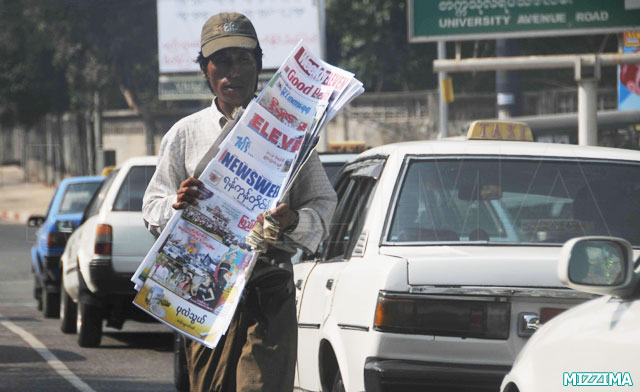Burma remains among the 10 most censored nations in the world despite the move from a military regime to a quasi-democratic government, according to the Committee to Protect Journalist, which released their latest report this week.
 The 10 worst cited by CPJ also included Eritrea, North Korea, Syria and Iran, Equatorial Guinea, Uzbekistan, Saudi Arabia, Cuba and Belarus.
The 10 worst cited by CPJ also included Eritrea, North Korea, Syria and Iran, Equatorial Guinea, Uzbekistan, Saudi Arabia, Cuba and Belarus.
Burmese President Thein Sein has vowed to adopt a more liberal approach, but The Press Scrutiny and Registration Department still reviewes all local news journals prior to publication, censoring a vast array of topics, CPJ said.
Criticism of the government and military is forbidden, although censors allowed more coverage of opposition leader Aung San Suu Kyi and some political and economic topics. “Authorities exercised control with a vengeance: The nation was still among the world's worst jailers of the press. Exile-run media continued to fill the news gap, but at a high cost: At least five undercover reporters for exile media were imprisoned,” it reported.
Regulations adopted in May banned the use of flash drives and VoIP communication services in Internet cafés.
How censorship policy works:
Although Burma has transitioned from a military to civilian government and released journalists among hundreds of political prisoners, and promised more reforms, its vast censorship structure remains in place.
All privately run news publications in Burma are forced to publish weekly rather than daily due to stifling prepublication censorship requirements. The government's Press Scrutiny and Registration Division (PSRD) censors news that could reflect poorly on the military or the government it backs, and imposes stringent rules about reporting conflict with the Kachin rebels.
The CPJ noted that the government dominates radio and television with a steady stream of propaganda. Laws bar the ownership of a computer without a license and ban the dissemination or posting of certain unauthorized information or material over the Internet. Prison sentences have been used to punish reporters working for exile-run media groups. Regulations imposed in 2011 banned the use of flash drives and voice-over-Internet-protocol (VoIP) communication in Internet cafés. Local reporters with international agencies are subject to constant police surveillance; others only publish stories under pseudonyms to prevent possible reprisals. Foreign reporters are regularly denied journalist visas unless the government aims to showcase a state-sponsored event. Journalists and others discovered reporting information while on tourism visas are expelled.



